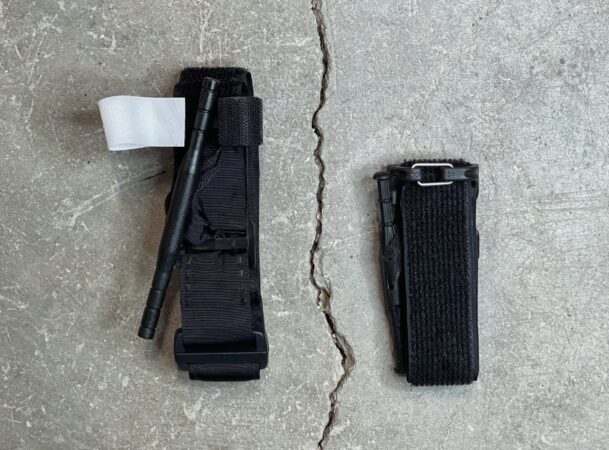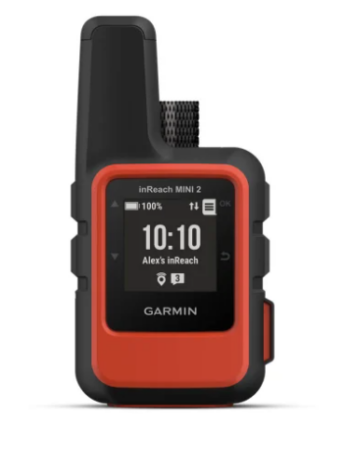Nobody gives a rip about a spare tire, until they need. Rarely will you ever consider the spare you have, or the equipment that goes with it, until you find yourself in a pinch. However, when you’re stuck on the side of the road, that spare tire and tools will quickly become your best friend.
The same goes with the survival tools and skills we possess. Regardless of whether you carry these skills simply in your mind, or as tools in your pack, there’s no doubt about it, when you need them – you really need them.
Don’t let a bad situation turn into a disaster. Be prepared. Here’s a look at 5 life-saving skills every hunter should have.

How to Use a Tourniquet
You’ve likely seen the use of a tourniquet in the movies. It was often used in those bloody movie scenes in the heat of battle to save a solider’s life. But rarely do we think of them as a modern day survival tool.
The truth is, they are just as important to keep in your kit these days as they were back in the past. And while some would advise to, “just keep adding pressure and bandages,” a tourniquet can truly change the game and slow the loss of blood. Apply the tourniquet first, then add bandages and pressure.

“Bleeding to death can happen very quickly. If the hemorrhaging isn’t stopped, a person can bleed to death in just five minutes. And if their injuries are severe, this timeline may be even shorter,” Holland Kimberly wrote in a Healthline article on the subject of bleeding to death.
My good friend, Luke August, knows how to survive. Whether in battle, or the backcountry, he knows the importance of carrying a tourniquet. He believes a tourniquet should be an essential item in every outdoorsman’s first aid kit.
“Bandaids are for school teachers and paper cuts,” he says. “Have a tourniquet accessible in case you’re by yourself. I have one zip tied to my chainsaw, one in each vehicle, one on the outside of my hunting pack, one in my side by side, house, shop, and tractor.”
Keep a tourniquet in your pack, and know how to use it.
How to Use a Map & Compass
With hunting apps on our smartphone like HuntStand and onX Hunt, do we really need to carry a compass anymore these days? Absolutely! The smartphone is a great tool, loaded with all the apps we could possibly need for navigation. It’s even got a built-in compass. But it’s also a battery operated tool that can/will die.
You better know how to navigate your whereabouts without having to rely on an electronic gadget. Do you know how to use an old school map and compass?
These are the tools that can save your life. And sadly, more and more hunters today couldn’t find their way out of the woods with just a compass. North, South, East and West – do you know how to find them and navigate the woods accordingly?

Do you know how to read a map and navigate it’s coordinates? These skills could save a life when you find yourself in a pinch and without power to your phone or GPS.
“Having an alternate means to navigate is a must,” says August. “If it requires batteries, it will fail you at some point. Having a map and compass is smart. Knowing how to use them could save your life. Be a good man, and be capable. Not just for you, but for your family and friends.”
How to Secure Clean Water in the Backcountry
You can toss a 32 ounce Nalgene bottle in your pack, but that won’t last you very long. Particularly if it’s hot, sweaty, and you plan to be in the woods all day, or overnight. You need to know how to safely refill that bottle.
Fortunately, there are a number of great tools and tactics for securing clean and safe water.
The Grayl GeoPress Ti is a super slick water system that delivers the ultimate in portability and versatility. It makes the job of securing and preparing clean water easier than ever.
This sophisticated bottle is designed with premium CP4 Grade 1 titanium, with durable oversized handles, a wide cooking surface, and OnePress global purification capabilities. The GeoPress Ti serves as a water collector, filter, purifier, drinking vessel and cook pot all in a single, compact bottle. It’s the perfect solution to maintain clean water for drinking, preparing meals, and so much more.

The LifeSaver Wayfarer filter from Earth Easy is a more traditional water fileter design that makes securing safe drinking a simple camp chore. The filter is designed to be light and compact, so it easily fits in your pack and won’t weigh you down.

The filter allows you to turn dirty, microbiologically contaminated water into water that’s safe to drink. The pump forces water through an ultra filtration cartridge and out through the exit hose, leaving microbiological contamination behind.
Old school methods of securing water, such as boiling water or using iodine tablets, still work these days. Doing so is a great way to lighten your load and rid your pack of extra filters or bottles. However, the down side is the wait time for boiling water and allowing sufficient time for it to cool down enough to drink.
Iodine tablets work well, but again, you have the wait time for tablets to dissolve and you’re often left with lousy tasting water. Lastly, neither of these methods filter out silt and debris.
How to Start a Fire in the Backcountry
Knowing how to start a fire can be one of the greatest life-saving skills you’ll ever learn. Every person ought to know how to make it happen. As boys, it was a natural desire for us to want to learn how to make a fire. It’s something many of us have never outgrown.

It’s a fun skill, but it could also save your life when things go south. When it’s dry, or when it’s wet, you need to have the skills necessary to make a fire. Check out the video below to learn more.
Having fire starting material on hand can be a lifesaver when you find yourself in a mess. The Fire Plugs from Bigfoot Bushcraft are a quick, easy and affordable way to make sure you can quickly start a fire, no matter the conditions.

How to Secure Rescue Help in an Emergency
Once you know how to build a nice big fire, you’ll be well on your way to accomplishing the next item on our list – how to secure help in an emergency. When things get ugly in the backcountry, you better have a means of getting the help you need. A fire is certainly one way to be found by a rescue crew trying to pinpoint your whereabouts.
But these days, depending on where you are, and what signal your phone has, rescue help may be just a phone call away. The key is to make sure you have your phone within easy reach. Always have it on you. Not tucked away in a pack, in your truck, or back at camp. It needs to be on your person.
Think about it, if you can walk out to access your phone, your emergency may or may not be life threatening. But when you’re on the ground, immobilized from a fall, treestand accident, water emergency, or other, you better have your phone within easy reach to save a life.

Other ways to signal help include a signal mirror, whistle, flares, or smoke. The seriousness of an emergency is escalated when you have no means of signaling potential help, locating emergency personnel, and helping them pinpoint your location.
There’s no better tool on earth in a backcountry emergency than the Garmin inReach Mini 2. The handheld device delivers global satellite coverage to keep you connected when cell phones can’t. You can send an emergency SOS when you find yourself in a serious situation, as well as stay connected with messages to family and friends for updates, even without cell phone coverage.
This is a life-saving tool every hunter should pack when hunting the backcountry and cell phone service is limited.

Don’t be caught dead without the simple tools and skills needed to make a difference. The skills mentioned above may not seem important now, but when you find yourself in a mess, they are the skills that could save a life. Don’t head back to the woods without them.
What about you? What life-saving skills and tools do you use and recommend?
Comment below and let us know what you think.

 By
By 



